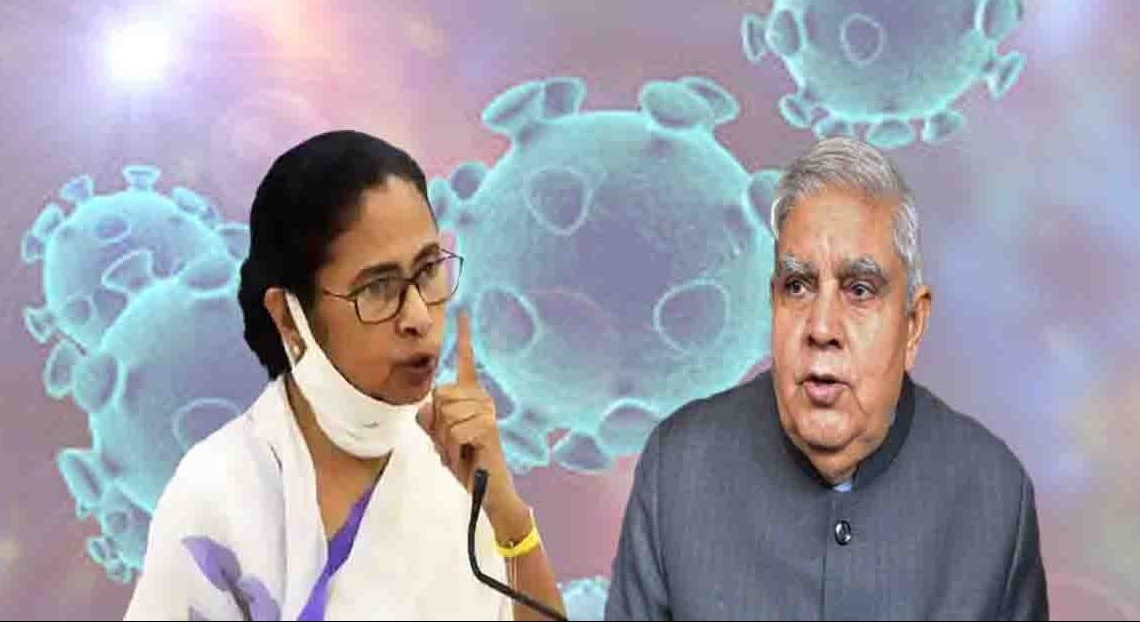Do not dream of a dyarchy, stop intensifying efforts to usurp power: Mamata Banerjee to Governor Jagdeep Dhankhar
West Bengal chief minister Mamata Banerjee on Saturday responded to Governor Jagdeep Dhankhar’s letters to her and stated that he must stop himself from intensifying his efforts to “usurp powers”, especially during the current COVID-19 situation. She also asked him to not dream of a dyarchy in the state.
Dyarchy (also spelled diarchy), is the system of double government that had been introduced for the provinces of British India. “Any student of Bengal’s history knows how the colonially engineered scheme of Dyarchy in the 1770s destroyed the political economy of Bengal. Your conduct, statements and letters from Day 1 remind the people of Bengal of those dark days of dyarchy in Bengal’s 18th century history,” Banerjee’s letter to the Governor stated.
Reiterating the respective roles of the Governor and the chief minister, Banerjee highlighted the limitations of the power of the former and added that “truth is always bitter, but this is the harsh constitutional truth. If you are unable to reconcile to this reality, you should have chosen my seat instead of yours.”
In her letter, the CM listed some of the words and phrases the Governor had used for her and the government in his two earlier letters such as:
*“there has been an outrageous, flagrant disrespect of constitutional prescriptions”
*(that I am) “a law unto oneself… (running the state) like a fiefdom”
*(my) “entire strategy is crafted to deliberately divert people’s attention from (my) abject failure in combating and containing Coronavirus in West Bengal”
*(my) “appeasement of the minority community”
*“theatrics or politicking”
* “antithetical to democracy and you practice it”
* “law unto oneself… bravado mode of collision…state… run like a fiefdom…”
Banerjee said that “such words and such communications of such content, tenor and tone from a Governor to an elected CM are unprecedented in the annals of Indian constitutional and political history”. She said that words used by the Governor about Banerjee and her ministers and officers have been – “even with maximum restraint can only be described as vituperative, intemperate, intimidating, abusive and insulting”. She said that such words have never been used by any Governor against any CM at any time in the country’s history since the Constitution came into force.
She said she was “more sad than angry” about it, but added that she was also amused. Banerjee in the letter listed some of her “favourite ones” that the Governor had used against her – and said while there was “inbuilt irony” and “humour” in the words, but “preaching without practice and sermonising while violating, does not behove of you or your office”.
Banerjee highlighted that she is a “representative” of the people while he was “nominated”, and explained their respective roles. She quoted from Supreme Court judgments to explain the Governor’s role. She wrote that if the Governor that if he doesn’t agree with the government, finds that the state is not being run “as you like it”, and “find wrong decisions, wrong appointments, wrong policies, wrong everything”, then he should “(politely) bring your grievance to my attention” instead of writing to officers, departments, ministers, media etc, and “If it is still not resolved to your satisfaction, there is, unfortunately, no other power in you, so long as my Government commands the confidence of the Legislature”. She added that even if the Governor disagrees or dislikes any decision, “you are obliged to sign and accede to the State Government’s wishes, subject, where applicable, to your SINGLE right of referral back”.
She also reminded the Governor “respectfully, but firmly” of restraining himself from using tweets of official communication on “continuous tweets in the social media”.
In the end Mamata Banerjee also said that she reserves the right to not reply to the Governor’s “adjectives”, since her time should better be utilised to fight the pandemic.


Comments are closed.